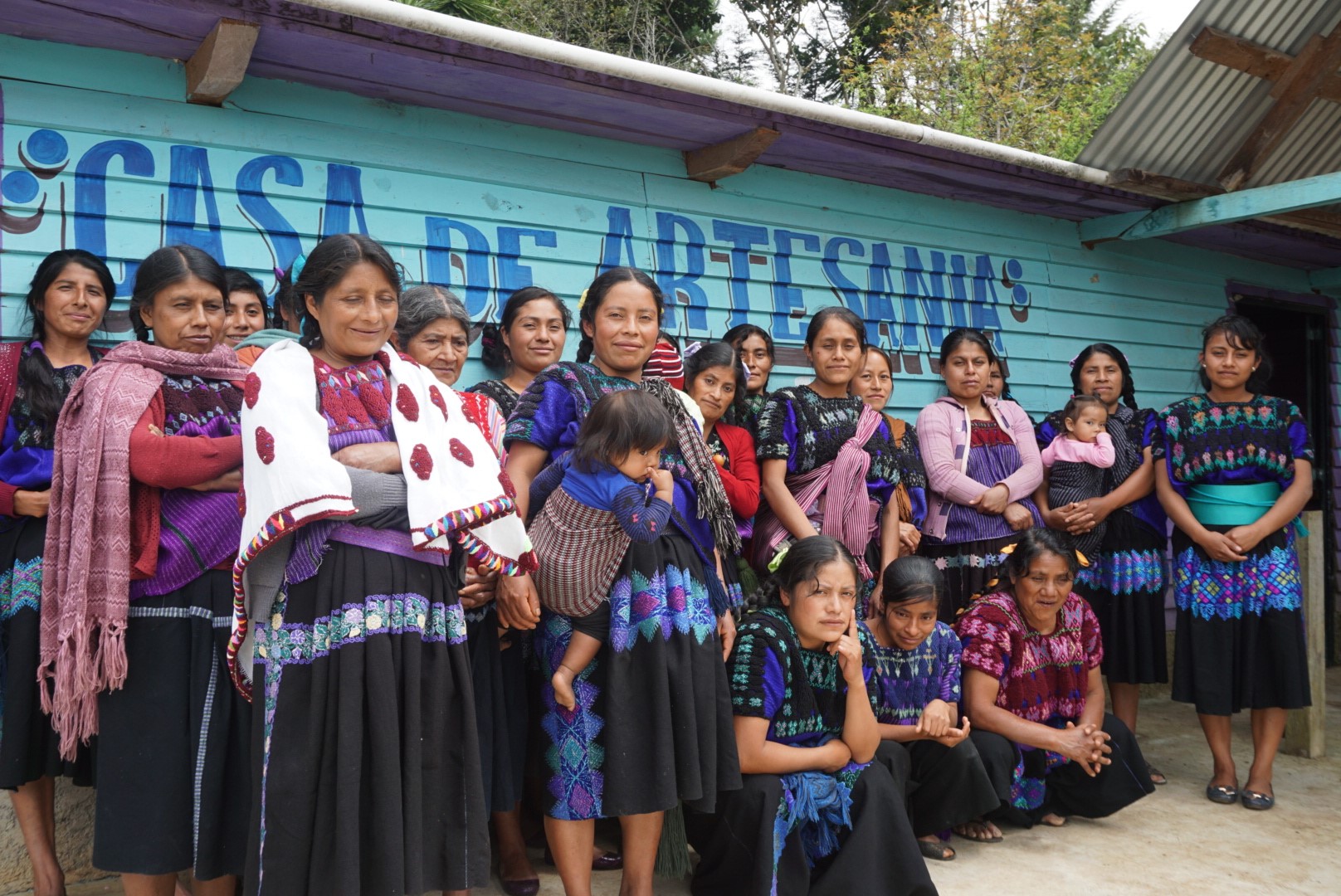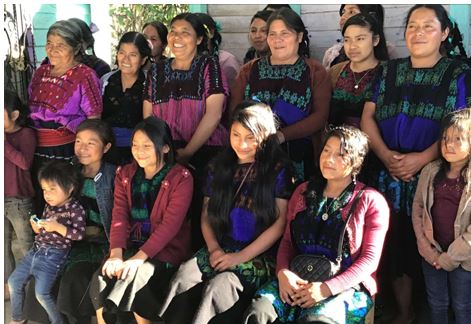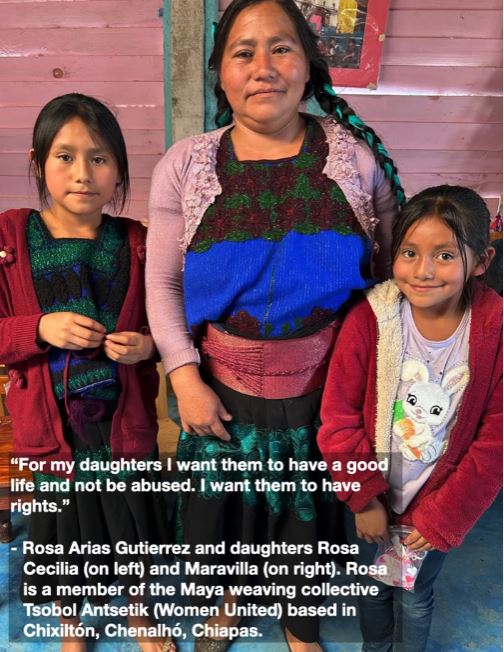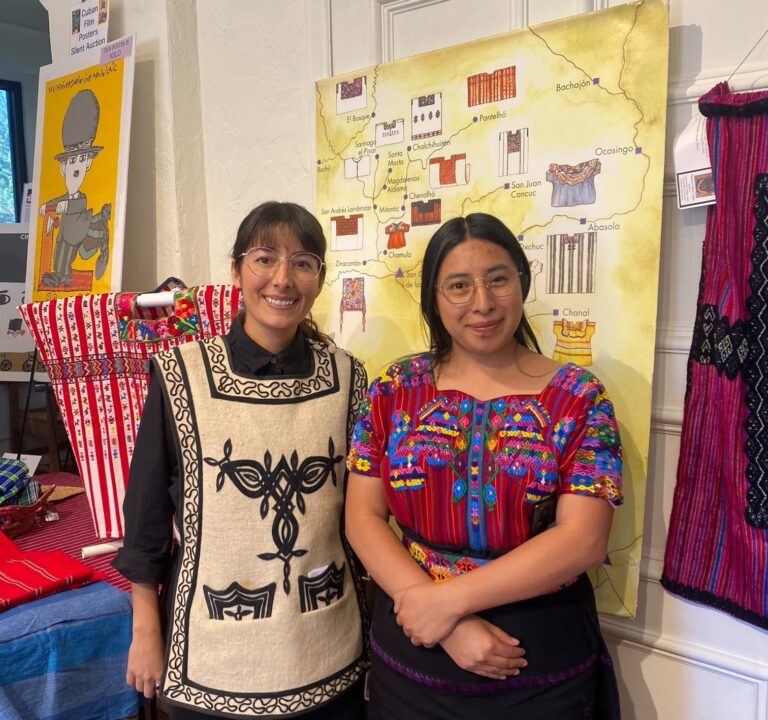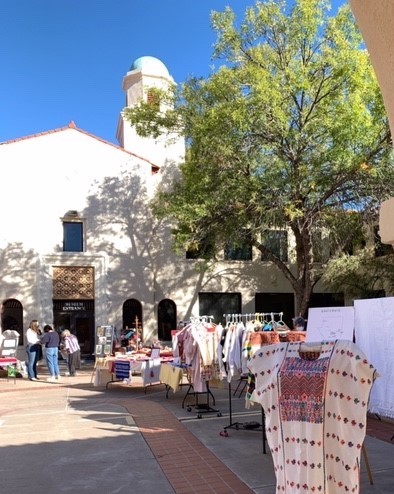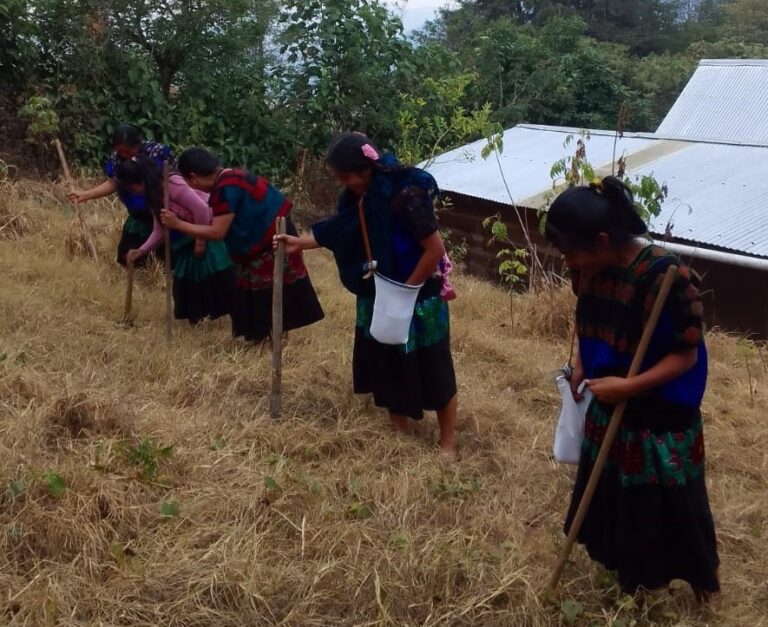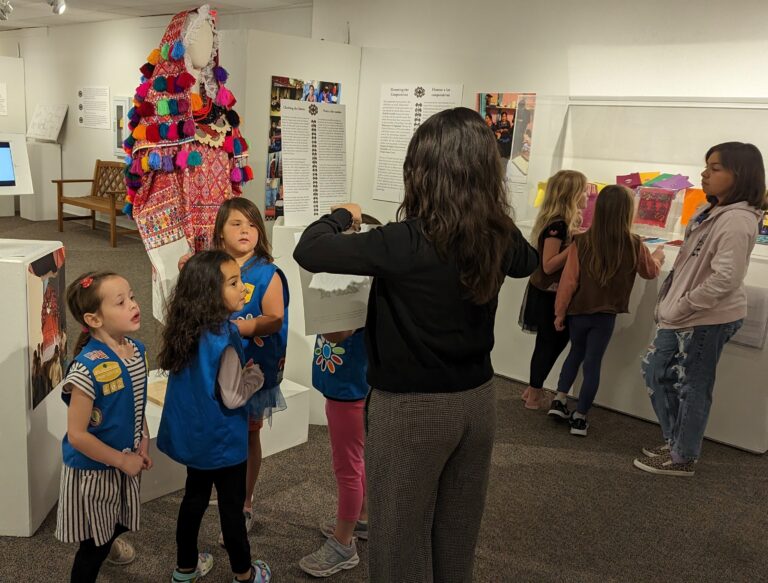Our advocacy work with weavers in Chiapas has its roots in the research that Christine Eber conducted in San Pedro Chenalhó, Chiapas in the late 1980s. There a Tsotsil speaking couple, Antonio Pérez Jiménez and Flor de Margarita Pérez, welcomed her into their home. Although her research focus wasn’t on weaving or weaving collectives, she learned a great deal about both of these from Margarita who was a weaver and involved in organizing other weavers.
Before Christine returned to Buffalo in 1989 to write her dissertation she asked Margarita what she could do to give something back to the women for all they had taught her. Margarita didn’t skip a beat before saying, “Please help the women in our community sell their weavings through fair markets.”
With that request Margarita gave Christine a cargo – an unpaid role of community service – that she tried to fulfill with the help of many people along the road in Buffalo and Connecticut where she taught anthropology. Finally, in 1995 she came Las Cruces to teach at New Mexico State University. At that time only a year had passed since the Zapatista uprising on January 1, 1994 had catapulted Chiapas onto the world stage. Many of Christine’s students were inspired by the Zapatistas and wanted to support their economic and social justice initiatives. In Las Cruces students and community members joined forces to hold fundraisers for displaced people and to sell textiles for the weaving collectives that Zapatista women had begun forming.
In 2003, Christine led a women’s delegation to Chiapas, after which the eleven members formed a network called “Las Cruces-Chiapas Connection.” That same year, Jean Bergs, one of the delegation members, filed paperwork to create a 501c3 organization — Sophia’s Circle – to support women’s art and cultural organizations on the U.S.-Mexico border. Eventually, Jean moved away leaving the organization in the hands of LCCC. In 2012 we changed our name to Weaving for Justice.
Our organization’s structure has always been non-hierarchical and woven with friendships, on both sides of the border. Our all-volunteer model of solidarity is not easily transferable and sustainable, but we continually work on how to sustain our commitment to return all proceeds from weaving sales to the cooperatives with which we work. (Please see About Us for more about our organizational model.) Above all, we strive to be in solidarity with weaving collectives in Chiapas in resisting – even striving to abolish – local and global systems that put profits over people and that would bend everyone to the will of those in power.
